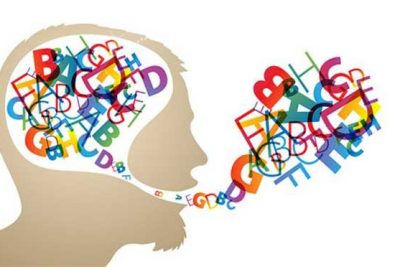Vocabulary is the building block of any language and it is an integral part of all the entrance exams and is often neglected because of low return on investment with regards to time. Also, there is a lack of certainty when it comes to learning vocabulary. That is, what’s the assurance that the words you learn are the words that would appear in the test. Obviously, no one can guarantee that. So what can you do? Leave the vocabulary questions to fate or to yet another game of ‘Inky Pinky Ponkey’?
Well, that’s always an option even after doing all you can for vocabulary. But what you can really do is forget for a while that you’re learning new words just to crack an exam. Learn it for yourself. There are umpteen benefits for doing so. Few of them include:
- It facilitates effective communication: Language is the use of words and phrases in order to communicate a thought, an idea, a feeling, a message, etc. and what better way to communicate than to use words with such precision and eloquence. You will be able to express yourself with ease. Also you will be able to understand better.
- It broadens your mindset towards new ideas: By learning new vocabulary, you not only gets better at communicating and understanding but also at adapting to new thoughts and ideas. If you can’t understand a particular word, you automatically stop following the trail of reasoning and/or new insights. When you are well equipped with vocab, you are more receptive towards a new line of reasoning.
- You sound smarter: Obviously you just don’t get smarter by knowing more words otherwise linguists would be the smartest of the lot. But by articulating eloquently, one does sound smarter, well read, capable and highly educated. This is why, according to a study, it has been regarded as the single best predictor of one’s success.
So that sounds swell. But how do you improve your vocab? It definitely isn’t an easy process. But there are a number of ways by which you can get better at it. Some of them are:
- Read: Yes, read. This is the most natural way of acquiring new words daily. Read newspapers, editorials, magazines, classics, fiction, non-fiction. It doesn’t matter what genre you read but what matters is what kind of books you read. Important thing is to read and identify the words you don’t recognise or understand and make an attempt to understand the meaning of it. Reading is important as in the end, contextual understanding is more important than just mugging it up. But it is a process and as with all processes, it takes time to build your vocabulary by reading.
- Make flashcards: An age-old technique and an efficient one at that, making flashcards is a really good technique to learn new words every day. Just write the words on the flashcard and on the back write their meanings. Go through them every day and test yourself. It’s as simple as that. You can even get ready made vocab flashcards in the market but by making them yourself you ensure that you go through your word list once already. The best part about this method is that you can use these cards anywhere and at any time; while you’re waiting in a queue, travelling to and fro or when you just have a few minutes to spare.
- Make a vocab book: Write down all the words you don’t know when you come across them, in a small book. Add the words at regular intervals and test yourself periodically to ensure that you have learnt them well. Also, it is important that you use these words in your day to day life till they become a part of your regular vocabulary.
- Root words: It is almost impossible to know all the words in any language. But most of the words are derived from root words and if you know the meaning of the root words, it is easy to decipher the meanings of the words derived from it. For example, the word ‘logy’ means ‘the study of’. Once you know that, words like sociology, theology, etymology, psychology, criminology, etc are easy to understand. So instead of focusing on individual words, focus on the root word and then learn the other words. This way of cluster-learning will ensure that even if you forget the meaning of any single word, you know which family (root) it comes from and what it means in the broader context.
- Associate a word with a picture: We, as humans, are really visual beings. So any new word you come across, try to associate it with an image in your mind. The image has to be as vivid and creative as possible. Once you relate the word to an image, even if you forget the meaning of the word, by merely recollecting the associated image, you can get some context to the word.
Techniques are many, you should just have the will to learn more and see which techniques and methods suit you the best. There are quite a few books also which can help you improve your vocabulary. One such book is the book by Norman Lewis, called ‘Word Power Made Easy’. It’s not only for people preparing for entrance exams but also for professionals who want to make an effort to advance their careers as well as people who simply want to learn and get better!


